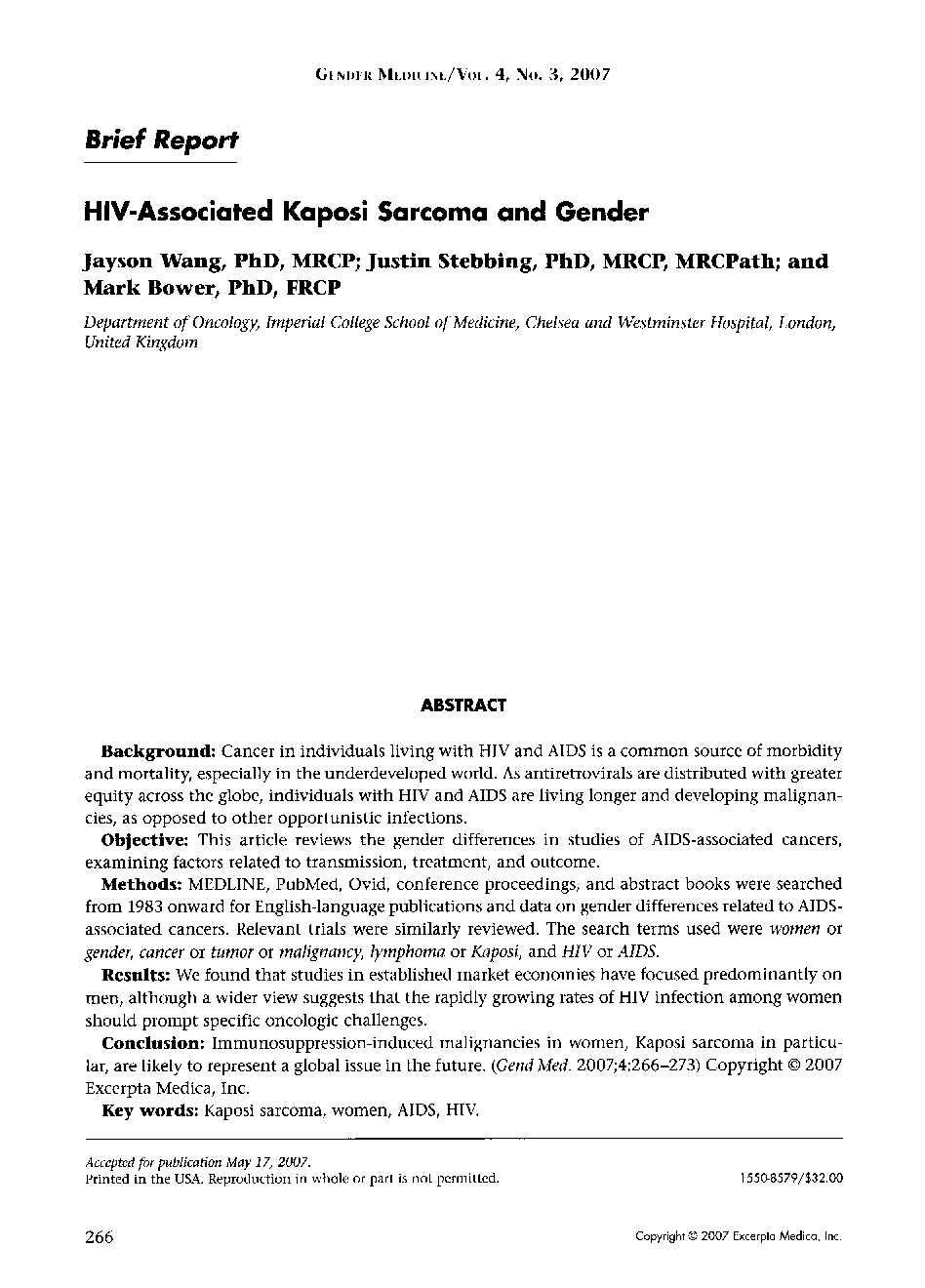| کد مقاله | کد نشریه | سال انتشار | مقاله انگلیسی | نسخه تمام متن |
|---|---|---|---|---|
| 2915980 | 1175605 | 2007 | 8 صفحه PDF | دانلود رایگان |

Background: Cancer in individuals living with HIV and AIDS is a common source of morbidity and mortality, especially in the underdeveloped world. As antiretrovirals are distributed with greater equity across the globe, individuals with HIV and AIDS are living longer and developing malignancies, as opposed to other opportunistic infections.Objective: This article reviews the gender differences in studies of AIDS-associated cancers, examining factors related to transmission, treatment, and outcome.Methods: MEDLINE, PubMed, Ovid, conference proceedings, and abstract books were searched from 1983 onward for English-language publications and data on gender differences related to AIDS-associated cancers. Relevant trials were similarly reviewed. The search terms used were women or gender, cancer or tumor or malignancy, lymphoma or Kaposi, and HIV or AIDS.Results: We found that studies in established market economies have focused predominantly on men, although a wider view suggests that the rapidly growing rates of HIV infection among women should prompt specific oncologic challenges.Conclusion: Immunosuppression-induced malignancies in women, Kaposi sarcoma in particular, are likely to represent a global issue in the future. (Gend Med..
Journal: Gender Medicine - Volume 4, Issue 3, September 2007, Pages 266-273